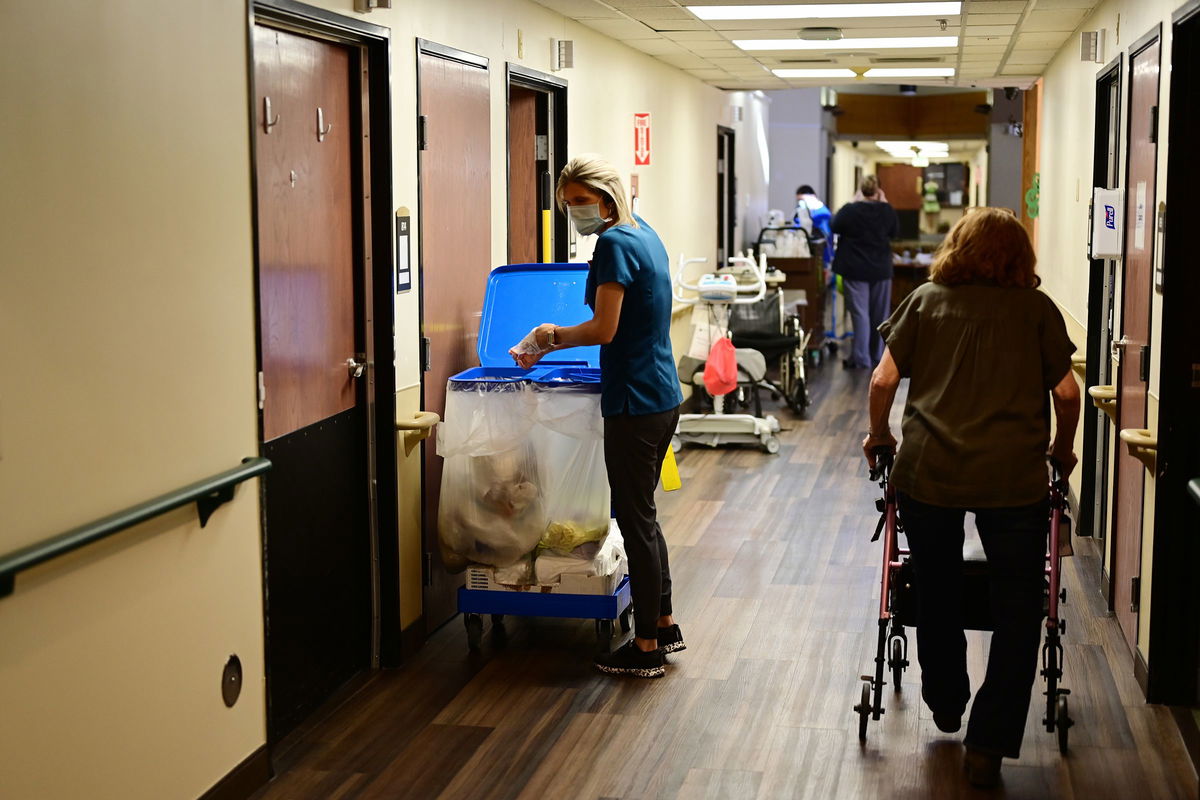Biden administration finalizes controversial minimum staffing mandate at nursing homes

Originally Published: 22 APR 24 05:20 ET
By Tami Luhby, CNN
(CNN) — The Biden administration finalized on Monday the first-ever minimum staffing rule at nursing homes, Vice President Kamala Harris announced.
The controversial mandate requires that all nursing homes that receive Medicare and Medicaid funding provide a total of at least 3.48 hours of nursing care per resident per day, including defined periods from registered nurses and from nurse aides. That means a facility with 100 residents would need at least two or three registered nurses and at least 10 or 11 nurse aides, as well as two additional nurse staff, who could be registered nurses, licensed professional nurses or nurse aides, per shift, according to a White House fact sheet.
Plus, nursing homes must have a registered nurse onsite at all times. The mandate will be phased in, with rural communities having longer timeframes, and temporary exemptions will be available for facilities in areas with workforce shortages that demonstrate a good faith effort to hire.
The rule, which was first proposed in September and initially called for at least three hours of daily nursing care per resident, is aimed at addressing nursing homes that are chronically understaffed, which can lead to sub-standard or unsafe care, the White House said.
“When facilities are understaffed, residents may go without basic necessities like baths, trips to the bathroom, and meals – and it is less safe when residents have a medical emergency,” the fact sheet said, noting that it will also “ensure that workers aren’t stretched too thin by having inadequate staff on site.”
Pushback from nursing home industry
Nursing home operators strongly objected to the minimum staffing proposal in September, saying they already struggle to fill open positions. Such a requirement could force some facilities to close.
Meeting the proposed mandate would require nursing homes to hire more than 100,000 additional nurses and nurse aides at an annual cost of $6.8 billion, according to a September analysis released by the American Health Care Association, which represents more than 14,000 nursing homes and other long-term care facilities that provide care to approximately 5 million people annually.
Some 94% of nursing homes were not meeting at least one of the proposed staffing requirements, the analysis found.
“When nearly every nursing home in the country would be considered out of compliance if this went into effect today, it demonstrates how out of touch Washington bureaucrats are with reality,” Mark Parkinson, CEO of the American Health Care Association/National Center for Assisted Living, said in a statement at the time. “We all want to grow the nursing home workforce, but this impossible policy is absolutely not the way to do it.”
Meanwhile, some consumer advocates were also dissatisfied with the proposed rule, saying it doesn’t go far enough.
“The proposal flies in the face of decades of research demonstrating a need for a strong staffing standard that protects all nursing home residents from harm,” the National Consumer Voice for Quality Long-Term Care said in a statement in September, noting that a Centers for Medicare and Medicaid Services study in 2001 found that nursing home residents need at least 4.1 hours of daily care.
The proposed staffing mandate has also split Congress, whose approval is not required. A bipartisan Senate bill and similar legislation introduced by House Republicans would prohibit the Department of Health and Human Services from finalizing the rule. Nearly a hundred House members from both parties wrote a letter to HHS Secretary Xavier Becerra in October expressing their concerns with the proposed rule, particularly that it could lead to widespread nursing home closures.
But Sen. Elizabeth Warren, a Democrat of Massachusetts, has called for the administration to finalize the rule and strengthen it.
“This would help improve the quality of care for residents at the same time that it’s improving conditions for the staff who provide this long-term care,” she said at a hearing of the Senate Special Committee on Aging last week.
And more than 50 organizations, including labor unions and consumer advocates, voiced support for the proposed mandate in a letter to Congress and an advertisement in the fall.
“With this proposal, the Biden Administration sends a powerful message: All nursing homes must be held accountable to minimum staffing standards that will keep residents and workers safe, and ensure that public funding is spent in ways that allow caregivers to deliver the best care possible,” Mary Kay Henry, international president of SEIU, which represents nursing home workers, said in a statement in September.
The-CNN-Wire
™ & © 2024 Cable News Network, Inc., a Warner Bros. Discovery Company. All rights reserved.